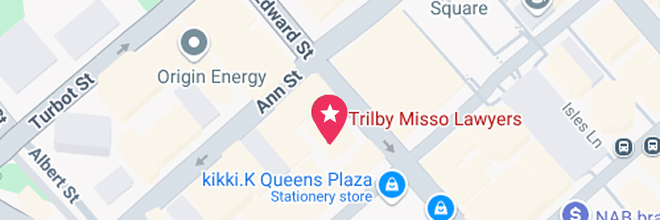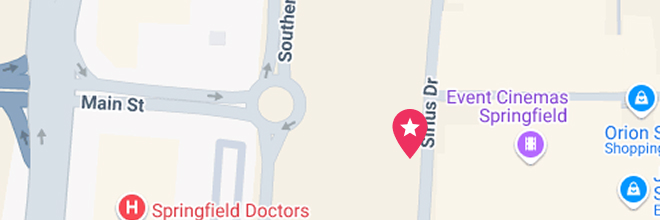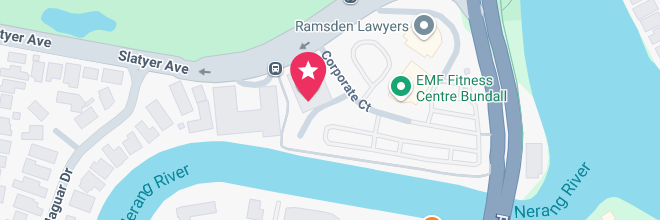Our Brisbane CBD Office
- Suite 400, Level 4/288 Edward St, Brisbane City QLD 4000
- (07) 3910 5470




Personal injury law covers a wide range of cases in which individuals are harmed due to accidents, negligence, or intentional acts. Personal injury lawyers handle claims for compensation where clients have suffered physical, emotional, or financial harm, aiming to obtain compensation for these losses.
There are several key types of cases within personal injury law, each with its unique complexities, evidentiary requirements, and claims process. The main types of cases that personal injury lawyers typically handle include:
Each of these types of cases requires a specialised understanding of specific legal principles, evidence gathering, and negotiation tactics.
WorkCover claims are designed to provide financial compensation and support to employees who have suffered injuries or illnesses in the workplace. Within the personal injury legal market, some lawyers specialise exclusively in workplace accident claims, offering clients deep expertise in WorkCover law. Workers’ compensation lawyers are familiar with a range of industries, from construction to healthcare, and understand the specific safety standards, training requirements, and best practices in each field. This specialisation allows them to identify when an employer’s negligence may have contributed to an accident and establish grounds for a compensation claim.
A WorkCover lawyer works to establish that the employer breached their duty of care. In workplace accident claims, the employer has a legal obligation to provide a safe working environment. This duty includes, amongst other things:
When an employer fails to meet these standards, and an employee is injured as a result, this breach forms the basis of a WorkCover claim.
The lawyer will gather evidence of the injury and its impact on the employee’s life, including medical records, reports from healthcare providers, and statements from co-workers or witnesses.
WorkCover common law claims extend beyond covering medical expenses and immediate lost wages. In a WorkCover common law claim, the personal injury lawyer will gather evidence to build a claim for:
A successful WorkCover claim helps injured employees access necessary resources to recover and continue their lives independently, even if they cannot return to work immediately or ever again.
Motor vehicle accident claims are another significant category within personal injury law. These claims are made under the Compulsory Third Party (CTP) insurance scheme, which requires all registered vehicles in Queensland to be insured against personal injury liabilities. In Queensland and other Australian states, every registered motor vehicle must carry CTP insurance, and a portion of each driver’s vehicle registration fee goes toward this mandatory insurance, ensuring coverage for injuries that a driver may cause to others.
Motor vehicle accident claims can arise from various situations, including:
Even in cases where the at-fault vehicle is unregistered or the driver is unknown, such as in hit-and-run accidents, injured individuals may still have the right to claim compensation through a government-backed scheme known as the Nominal Defendant. The Nominal Defendant steps in as the liable insurer in these situations, ensuring that injured parties have a pathway to pursue compensation even when the responsible party is unidentifiable. However, claims involving unregistered vehicles or unidentified drivers are subject to strict deadlines, often requiring that claims be filed within three months of the accident or, in some cases, up to nine months if a valid excuse for delay is provided.
A motor vehicle accident lawyer assists clients in navigating the complex claims process, ensuring that claims are filed within the required timeframes and that procedural requirements are met. They gather evidence, including police reports, witness statements, and medical documentation, to establish that the other driver was negligent and that the client suffered injuries and losses as a result.
Motor vehicle accident claims can be challenging due to the multiple factors involved, such as proving fault, understanding the extent of injuries, and negotiating with insurance companies.
Public liability law covers accidents that occur in public spaces or other locations outside of an individual’s home. Public liability claims are broad in scope and apply to various incidents in which a person is injured due to someone else’s negligence. Common types of public liability claims include:
In public liability cases, the injured party must prove that:
Proving a breach in public liability cases often involves showing that the responsible party failed to take reasonable steps to prevent foreseeable risks. For instance, a shopping center may be considered negligent if it fails to quickly clean up a spill, resulting in a slip-and-fall accident. A public liability lawyer gathers evidence to demonstrate negligence, which may include video footage, witness statements, safety inspection records, and expert testimony.
Given the diverse nature of public liability accidents, these cases can be complex, and lawyers in this field are well-versed in identifying the specific responsibilities owed in each context. They handle the nuances of different public liability situations and gather the evidence needed to support their client’s claim. Compensation for public liability claims may include coverage for medical expenses, pain and suffering, lost wages, and rehabilitation costs.
Medical negligence is a highly specialised area of personal injury law that deals with injuries or harm caused by healthcare professionals failing to provide a standard level of care. A medical negligence claim arises when a doctor, nurse, surgeon, or another healthcare provider is negligent, causing injury to the patient. Medical negligence claims can arise from various situations, including:
Proving negligence in medical cases is complex, as it involves showing that the healthcare provider’s actions deviated from the standard of care expected in the medical field. A skilled medical negligence lawyer has experience gathering necessary evidence, which often includes expert opinions from medical professionals willing to review the case and provide testimony that the treating provider’s actions were substandard.
Medical negligence cases can be challenging, as not all doctors are willing to testify against their colleagues. Lawyers experienced in medical negligence cases typically have established networks of trusted medical experts who can offer unbiased opinions and support the case.
Compensation in medical negligence cases may include coverage for additional medical treatment, loss of income, rehabilitation costs, pain and suffering, and, in severe cases, lifelong care expenses.
Total and Permanent Disability (TPD) claims differ from other types of personal injury claims because they do not involve proving fault or negligence by another party. Instead, TPD claims are made against an insurance policy, often through an individual’s superannuation fund, to access compensation if they are permanently unable to work due to injury or illness. Many people have TPD insurance as part of their superannuation policy but may be unaware of it.
TPD claims require that the claimant meets the definition of “Total and Permanent Disability” as specified in their insurance policy. This definition varies between insurers and policies, which can complicate the process. Generally, TPD policies cover situations where the claimant cannot return to work in their chosen occupation or, in some cases, any occupation.
A TPD lawyer assists clients by:
Unlike other personal injury cases, which focus on compensating the injured party for damages caused by another’s negligence, TPD claims are contract-based. Therefore, a successful TPD claim depends on satisfying the specific terms of the insurance contract rather than proving fault. Compensation in TPD cases provides financial support to individuals who are unable to return to work, helping them cover living expenses, medical treatment, and other costs.
Given the complexity of personal injury law, each type of case benefits from specialised legal expertise. WorkCover claims, motor vehicle accident claims, public liability claims, medical negligence cases, and TPD claims all require lawyers with unique skills and experience. For example:
Further Reading: Types of Personal Injury Claims – Legal Aid Queensland
This page provides general information about making a personal injury claim in Queensland, including time limits and notification requirements.
Kathryn is Trilby Misso’s Chief Executive Officer.
Meet KathrynUse this simple online tool and find out if you have a claim in less than thirty seconds. You can choose to remain anonymous.
Your next step is a small one. All you need to do is give us a call on 07 3910 5470 or complete this form here to arrange a quick chat.
During this initial conversation, we will:

We understand that taking legal action can be stressful, and we’ll do all we can to ease your concerns.
The chat can take place at our place, your place, or by phone. There is no cost, no pressure, and no obligation.
Call 07 3910 5470 or fill out this form, and we’ll get back to you within 2 hours (during business hours). We look forward to meeting you.
enquire now